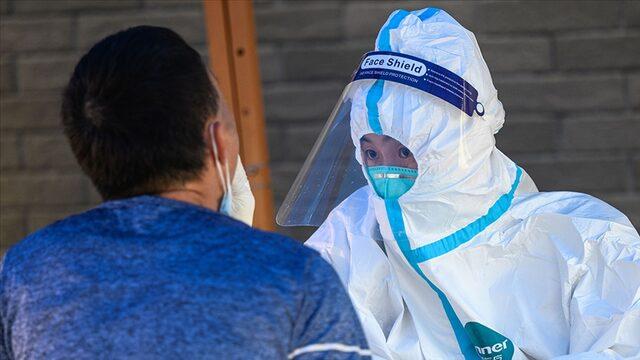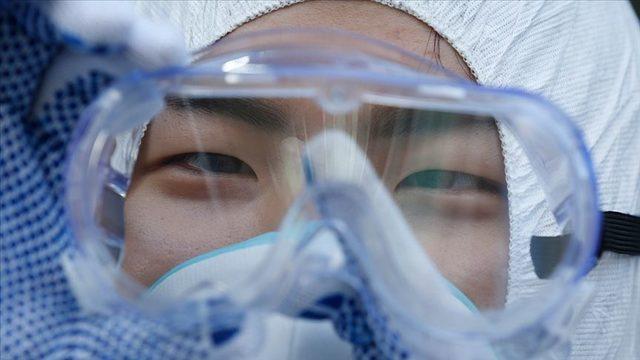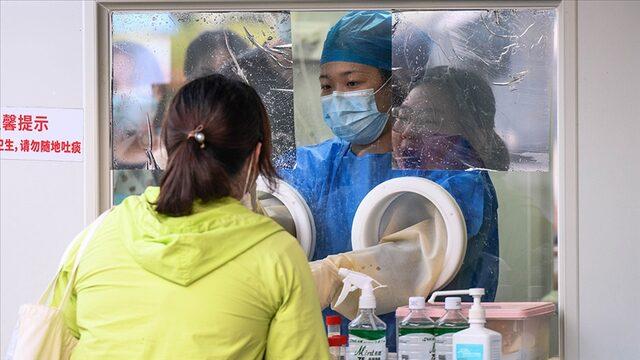Chinese scientists suggested that the findings in Wuhan, where the first cases emerged in the Kovid-19 epidemic, strengthen the possibility that the virus spread from humans, not wild animals.
The Chinese Center for Disease Control and Prevention (CDC) held a press conference in Beijing at the weekend to share data and information on the research of the origin of Kovid-19.
Responding to the criticism that sufficient information is not shared with the international scientific world regarding the origin of Kovid-19, institution officials and scientists suggested that the DNA data shared in the international scientific journal “Nature” last week indicates the human origin of the virus.
In the study, in which DNA analyzes of more than 1300 samples collected from animals and the environment were shared in the seafood food market in Wuhan, where the epidemic first appeared, the researchers underlined that no virus was found in any of the 457 animal samples examined, and argued that this invalidates the possibility of transmission from animals.
The researchers expressed the opinion that DNA of raccoon dogs and other wild animals was found in 73 of the 923 samples collected from the environment, which included positive findings, revealing the evidence of contamination from the animal.
Tong Yigang, Dean of Peking University University of Life Sciences and Technology, pointed out that the genetic sequencing of environmental samples matched exactly with the samples taken from the first cases, “These findings indicate that in the cases on the market, the virus was transmitted from other people, not from animals sold.” used the phrase.
Arguing that there is no solid scientific evidence that definitively points to the origin of Kovid-19, Tong said that there is no data on the possibility of the virus being transmitted from animals as well as the possibility of leaving the laboratory, and that this possibility was revealed in the examinations carried out by the World Health Organization (WHO) expert committee in Wuhan in 2021. He recalled that it was concluded that he was “extremely weak”.
CDC researchers shared data on the genetic sequencing of samples collected from January to March 2020, following the outbreak, in WHO’s GSIAD database last month.
Based on these data, a group of international researchers hypothesized that Kovid-19 may have been transmitted to humans from raccoon dogs sold in the market.
However, China’s subsequent deletion of the genetic information it shared from its database led to new discussions about transparency.
WHO Secretary General Tedros Adhanom Ghebreyesus criticized China for sharing data that could shed light on the origin of Kovid-19 late and for adopting an untransparent stance on this issue.

COVID-19 WAS SEEN FOR THE FIRST TIME IN THE FOOD MARKET IN VUHAN
The world first became aware of the Kovid-19 outbreak when it reported to the World Health Organization (WHO) that a “mysterious respiratory disease of unknown origin” emerged in the city of Wuhan, Hubei province, on December 31, 2019, China.
The disease was first seen in people who visited the seafood food market in Wuhan, and the first patient applied to the hospital on November 17, 2019, with the complaint of “respiratory discomfort”, the cause of which cannot be understood.

It was understood that the disease that causes lung inflammation is caused by a previously unknown type of coronavirus, which is thought to be a mutated version of a beta coronavirus found in bats.
WHO DELEGATION CONDUCTED RESEARCH IN VUHAN
At the beginning of 2021, WHO sent an international delegation of scientists to the city of Wuhan, China, where the first cases emerged, to investigate the origins of Kovid-19.
The delegation made investigations at the Wuhan Institute of Virology, where the virus was alleged to have emerged as a result of an accident, as well as the Wuhan Seafood Food Market, where the first cases were seen in the city.

After the Acute Respiratory Syndrome (SARS) epidemic that affected China and Asian countries in 2002-2003, the institute, which was established to create an archive with the genetic information of bat coronaviruses, was the subject of allegations that Kovid-19 was artificially produced in the laboratory here and was accidentally released. .
Chinese authorities denied the allegations and made unproven counter-claims that Kovid-19 originated in another country and came to the country with imported frozen seafood. (AA)
